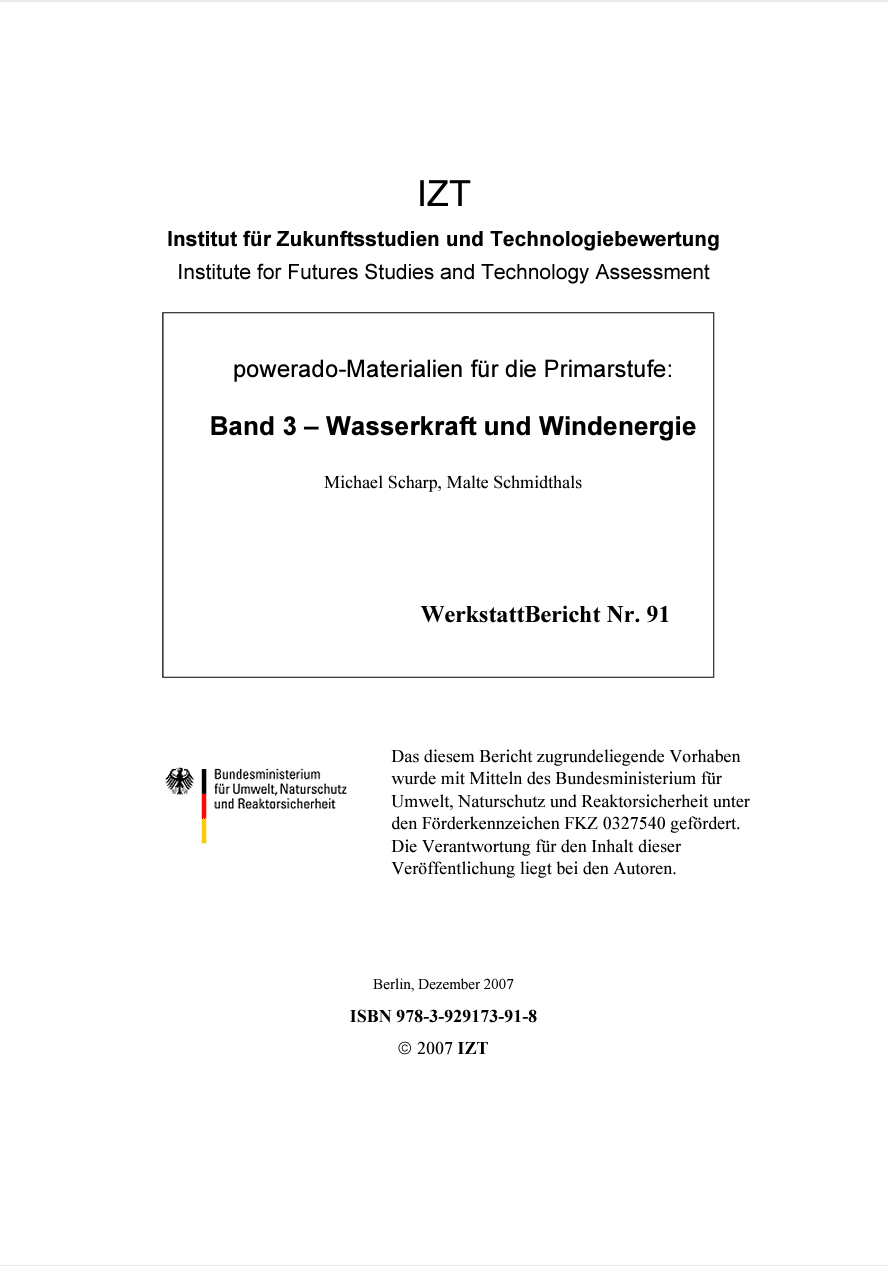Powerado materials for the primary level
Abstract
Energy and renewable energies have not been central topics for primary school lessons so far, and mostly not for SEK I either. This is mainly due to the lack of curriculum links. As a consequence, there is hardly any teaching material that interested teachers can use. With the "powerado materials for primary level" we want to close this gap. Teachers and educators should be able to use these materials independently to make offers for the communication of renewable energies. The materials were developed within the framework of the research project "powerado: Erlebniswelt Erneuerbare Energien". In this project, various modules were developed to improve the communication of renewable energies (cf. www.powerado.de ). Examples include a computer game, a knowledge quiz, material boxes for kindergartens, primary schools and youth leisure facilities, a travelling exhibition on school projects, experiments on renewable energies, proposals for curricula in the further training of craftsmen and a course for future teachers. The project was funded by the BMU Federal Ministry for the Environment, Nature Conservation and Nuclear Safety. We would like to thank the funding body very much for enabling us to develop these materials. Volumes 1 to 6 of these materials deal with two topics each for pupils, the seventh volume contains background information for teachers: Volume 1: Energy and Living with Energy, Volume 2: Renewable and Non-renewable Energies at a Glance, Volume 3: Hydropower and Wind Energy, Volume 4: Solar Energy, Solar Heat and Solar Power, Volume 5: Bioenergy and Geothermal Energy, Volume 6: Climate Change and Energy Saving. All materials have the same structure. Under a selected topic question, there is first a simple reading text (topic text). Then there is a picture question with associated pictures and the answer to the question. Finally, there are further multiple-choice quiz questions for each topic question. The answers can be taken from the topic text. In developing the materials, care was taken to ensure that the topic is covered as completely as possible. Nevertheless, the topic texts are written as simply as possible and can also be used independently.
